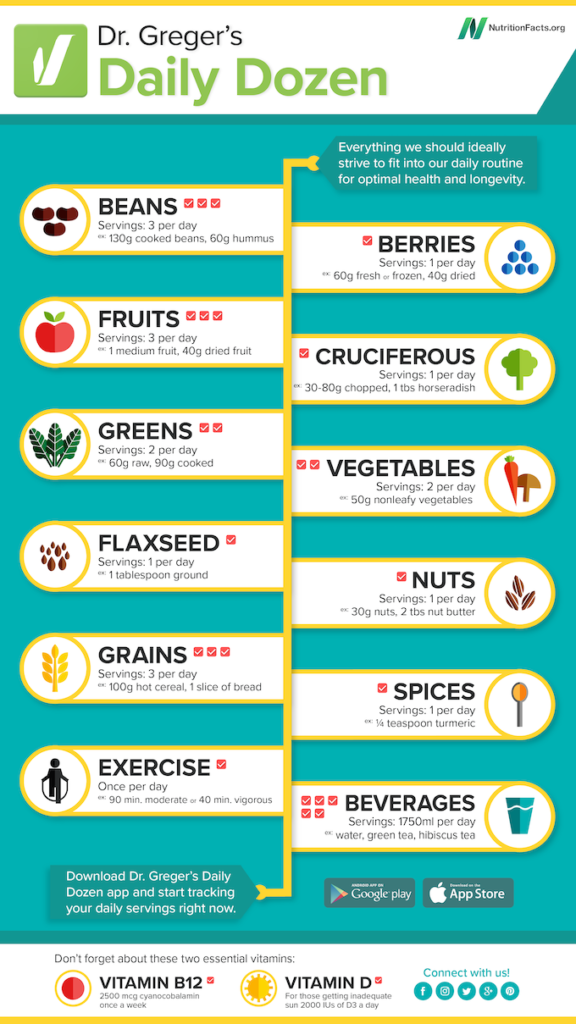Below is what you need to know in order to start your vegan journey. Remember, being vegan does not mean that you are eating healthy. You need to know what to eat to make the most of the benefits of this diet as well as reduce its risk.
Note: this post will be updated regularly as I learn more about this diet.

Credit: Nutritionfacts.org
Download the Daily Dozen application.
What you should not consume:
- Animal product (meat, chicken, fish, etc.)
- Dairy (milk, cheese, yoghurt, etc.)
- Oil
- Added salt
- Added sugar
- Processed food (Refined carbohydrates, sodas, etc.)
Additional Supplements:
- Vitamin B12
- Vitamin D (if you do not spend enough time under the sun)
- DHA/EPA (Omega 3) 200mg per day – Not sure about this one yet.
- Zinc
- Iodine
Other tips:
- Only eat when you are hungry in order to give your body time to detoxify. (See catabolic phase vs anabolic phase of the digestive system)
- Eat only up to 2 ounces of animal product (meat, fish, chicken, etc.) a day if you have to. It should be used as a flavouring to your food, not the main meal. Better yet, eat the non-commercial animal products such as wild animals.